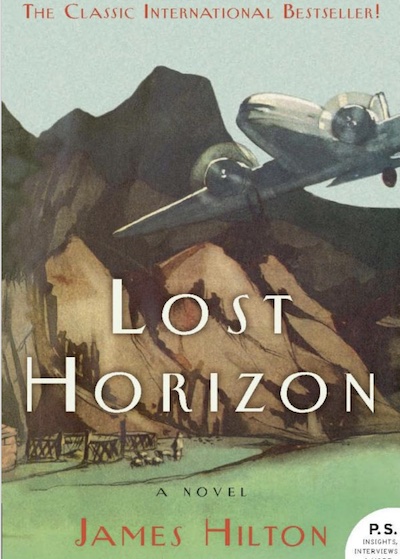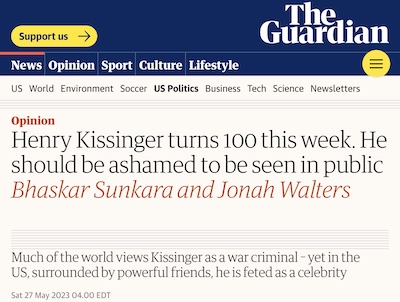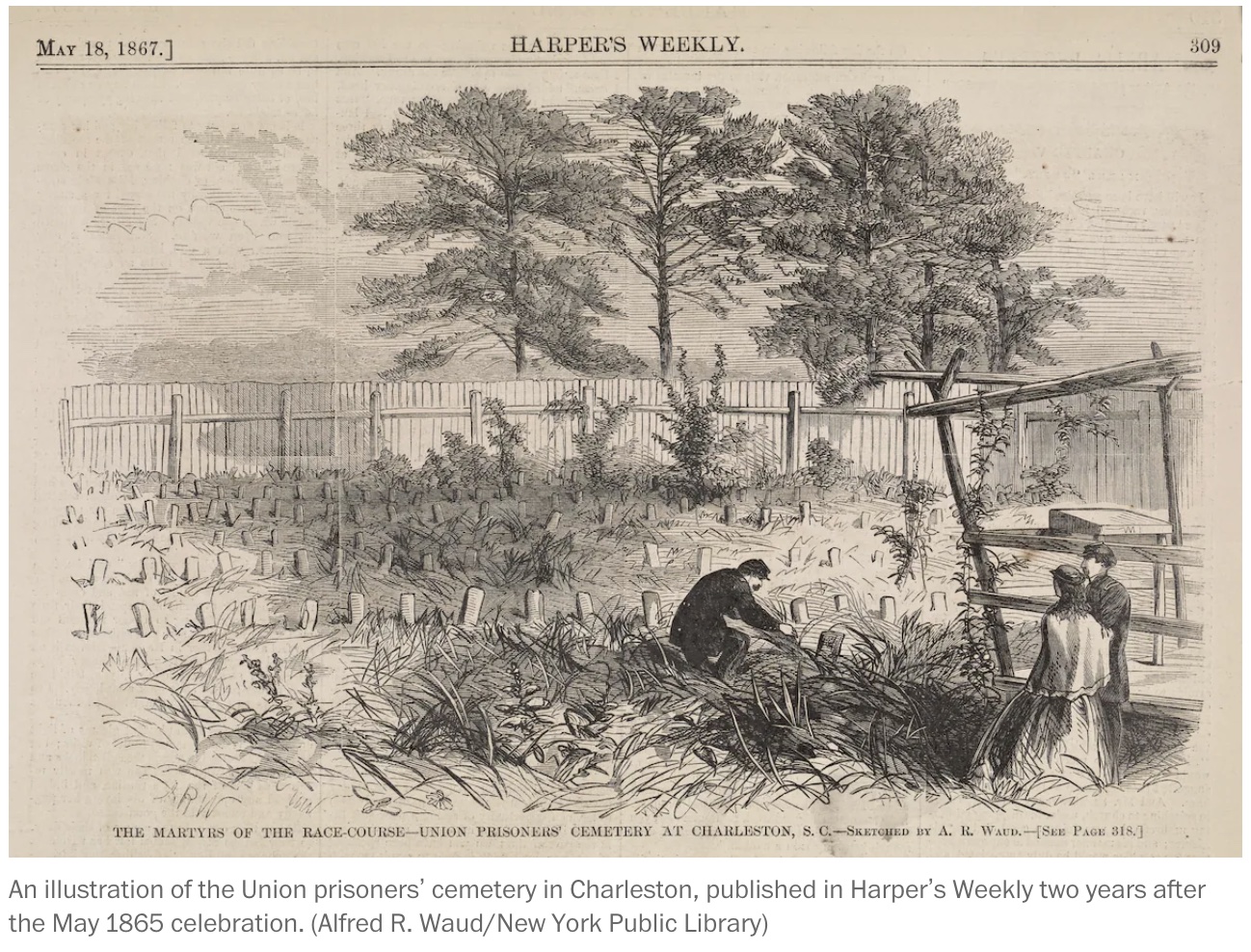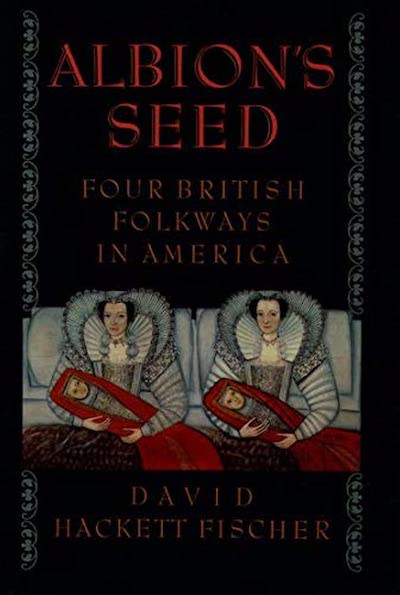Memorial Day 2023
Tagged:Beauty
/
NotableAndQuotable
/
Politics
/
Religion
/
Sadness
Apparently, here in the US it’s Memorial Day again. What should we think about that? Well… a lot!
Imprimus, apologia pro vita mea
Yes, this post is a couple days late. I plead post-COVID-19 brain fog. Experienced readers, if there be any, will also note the lack of recent mathematics, for the same reason. Sigh.
I feel as I imagine an elderly, arthritic athlete might feel, upon attempting the tricks of youth and failing with a comic pratfall. Were I to attempt the Triple Wig Flip event, I would just embarrass everybody and spill wig powder all over the place.
On t’other hand, my now-milder cognitive impairment means I can’t make jokes about:
- “powdered Whigs”,
- my affection for Whiggish history (and disappointment that the world does not share this affection), and
- the historic pronunciations of “w-“ vs “wh-“ in the US upper midwest mid-20th century English dialect of my youth, wherein “wig” and “Whig” actually sound different. (Or so my first grade teacher insisted, with a vehemence that has kept it in my head, a lifetime later.)
However: someday soon, I hope that that mental capacity will return. So be sure you are properly warded against Very Obscure & Very Bad Jokes.
Ambiguity About War-Rooted Holidays
At this CLBTNR (“Crummy Little Blog that Nobody Reads”), all 6 of you who occasionally and defiantly read it anyway will recall that your humble Weekend Editor is not especially fond of war memorials in general, and that Memorial Day last year in particular was a time of some… ambiguous feelings.

 As you have perhaps blissfully forgotten from last year’s episode of Memorial Day
grumpery, I just couldn’t engage with thinking about war, violence, and US policy. There
was the COVID-19 pandemic, monkeypox, Russians starting a land war in Europe with
unrepentant war crimes, repeated mass gun violence, and so on.
As you have perhaps blissfully forgotten from last year’s episode of Memorial Day
grumpery, I just couldn’t engage with thinking about war, violence, and US policy. There
was the COVID-19 pandemic, monkeypox, Russians starting a land war in Europe with
unrepentant war crimes, repeated mass gun violence, and so on.
This year, we still have all that.
We also have a Republican caucus in the US Congress using the debt limit as a hostage situation, trying to force cuts to programs for the middle class and below to finance their tax cuts for the wealthy. And they’re not even shy about calling it a hostage situation.
And Trump is somehow not yet in prison.
And our Supreme Court is exposed as wildly corrupt.
And… oy.
So last year, in an apparent exercise in drawing down the moon, I was taking momentary refuge in a fantasy of a kind, peaceful community that wanted to preserve humanity’s intellectual and cultural patrimony against war. That was, of course, James Hilton’s 1933 novel Lost Horizon [1], and the amazing 1937 film adaptation by Frank Capra. [2]
That was… surprisingly somewhat effective. If you need a momentary escape from the medical, military, and political horrors of the present, I recommend both the Hilton book and the Capra film. (Though you will have to discount some of the casual racism of the 1930’s against Asians and the white savior trope. It is, after all, a period piece, and that’s how the period was. A modern version would be quite interesting!)
 NB: The PBS link to the 1937 Frank Capra movie shown here (click on the picture)
sometimes won’t play for me if I’m using a VPN, but will do so if I pause the VPN. I
didn’t know they could intercept VPNs like that. YMMV.
NB: The PBS link to the 1937 Frank Capra movie shown here (click on the picture)
sometimes won’t play for me if I’m using a VPN, but will do so if I pause the VPN. I
didn’t know they could intercept VPNs like that. YMMV.
Back to Unpleasant Reality
Henry Kissinger
Mike Godwin is the originator of the humorous Godwin’s Law on reductio ad Hitlerium: in any argument, the side first comparing their opponents to Hitler or Nazis is deemed to have lost the argument and thereby ended the discussion. (Though Godwin was at pains to point out, with the rise of Trump and revenant Nazis, that Godwin’s Law is suspended when talking about real fascists and authoritarians, of either the historical or revenant variety.)
He reminds us, upon Memorial Day, that Henry Kissinger is (a) 100 years old, and (2) still alive, and (iii) somehow still not imprisoned as a war criminal:
Godwin’s proposal that Hell has refused to take Kissinger, resulting in his current undead status, is… interesting… for at least 3 reasons:
-
On the one hand, it reminds me of a line in Death Cab for Cutie’s song “I’ll follow you into the dark”. But this is clearly a specious association, since that song is about a love that transcends death.
No, spending eternity with Henry Kissinger is more like Jean-Paul Sartre’s play Huis Clos (No Exit), containing the famous line: “L’enfer, c’est les autres” (“Hell is other people” or “Hell is the Other”).
I don’t even want to hear about the guy from a distance. Being trapped somewhere for eternity with an unrepentant Kissinger, well…
-
Kissinger is not in hell; this we know.
However, he seems to have a remarkable talent for turning wherever he finds himself into a Hell. He is like Mephistopheles in Marlowe’s play Faustus, whose very nature and loss of Heaven makes a hell of wherever he is:
Faust. How comes it then that thou art out of hell?
Meph. Why this is hell, nor am I out of it.
Think’st thou that I who saw the face of God,
And tasted the eternal joys of Heaven,
Am not tormented with ten thousand hells,
In being depriv’d of everlasting bliss?Think about Cambodia & Laos after the bombings, or Chile after the coup d’etat. Were those not hellish results of Kissinger’s direct influence?
(A fair objection: Mephistopheles made a hell for himself, but Kissinger made a hell for others. So… L’enfer, c’est pour les autres? Hmm.)
-
Finally, I recall the old British sitcom Bless Me, Father (by proxy of course – I’m not one of those BritCom cognoscenti!). The main character was a priest in suburban London named Fr. Duddleswell. He had… interesting opinions:
Only a heretic would deny the existence of Hell. …
Only a fool would believe there’s anyone in it.I approve enthusiastically of this sort of universally redemptive theology, fan of apokatastasis that I am. But I admit to my sorrow that I am defective enough to imagine making an exception for Kissinger. Perhaps my ability to forgive and see the divine in Kissinger will grow. Or perhaps Kissinger will repent. Or both.
But that’s how it feels for now. I hope we both get better.
 I am, unfortunately, not alone in these sentiments. (“Unfortunately”, because it would be
a better world if Kissinger had been a decent sort of fellow, about whom I simply had a
bat in my bonnet. This is not that world.)
I am, unfortunately, not alone in these sentiments. (“Unfortunately”, because it would be
a better world if Kissinger had been a decent sort of fellow, about whom I simply had a
bat in my bonnet. This is not that world.)
As evidence, consider this article in The Guardian [3] about Kissinger’s attainment of centenarian status. In the US, he’s regarded as a heroic intellectual figure and surrounded by celebrities. Elsewhere, he’s a war criminal in danger of being hauled before the Hague tribunal for war crimes.
(Is it bad to fantasize that once Kissinger dies, the US might finally join the Rome Statute and be part of the International Criminal Court?)
Amusing fact from the article: Nixon and Kissinger were so joined at the hip that they were sometimes called “Nixonger”. This reminds me of the friendship of GK Chesterton and Hillaire Belloc that made GB Shaw call the pair “ChesterBelloc”. (Though, of course, I despise the first pair and – sometimes – admire the second.)
In fact, much of the world reviles Kissinger. … But in the United States, Kissinger is untouchable.
Indeed. And alas.
The Origins of Memorial Day
Enough with undead diplomats! Let’s think about the origins of Memorial Day. It’s… surprisingly fraught with complications.
 Erik Loomis at Lawyers, Guns, and Money has a nicely informative post on the origins of
Memorial Day. [4]
Erik Loomis at Lawyers, Guns, and Money has a nicely informative post on the origins of
Memorial Day. [4]

 Mostly it’s a reference to these 2 articles in the WaPo on the
origins [5] [6], which turn out
to be pretty complicated!
Mostly it’s a reference to these 2 articles in the WaPo on the
origins [5] [6], which turn out
to be pretty complicated!
- There are lots of sources for the holiday. Many cities in the US claim to be the originators of Memorial Day.
- However, historical research tends to emphasize the cities of the American South, which has always emphasized military tradition in the first place.
- An 1866 New York newspaper article described some of the nascent Southern traditions,
particularly among Southern women:
“… traitors in the South have their gatherings, day after day, to strew garlands of flowers upon the graves of Rebel soldiers.”
-
The imitation of this tradition in the North, in an effort to make it less about the regrettable Confederacy, led in 1868 to “Decoration Day” in which war veteran’s graves were decorated. In 1868, the New York Times described it this way:
“The ladies of the South instituted this memorial day. They wished to annoy the Yankees; and now the Grand Army of the Republic in retaliation and from no worthier motive, have determined to annoy them by adopting their plan of commemoration.”
It didn’t become formal law until much later.
- There are some excellent photos in the WaPo articles:
- An 1865 photo of the relocated graves of the Union soldiers who died in Confederate captivity, relocated by freed black residents.
- A revolting 1922 photo of the United Daughters of the Confederacy holding a bizarre flag and wreath at the Confederate Memorial at Arlington National Cemetery. (It disgusts me that there exists a monument to traitors to the United States in the military honor cemetery of the United States. [7] This memorial is so galling that it even depicts blacks in Confederate uniforms as “faithful Negro servants” attending their masters in the military. I just can’t understand the impulse to memorialize traitors and slavers.)
So, was it initially an insistence in the South on honoring the traitors of the Confederacy? That’s… dark, but the roots seem to be even darker. (Though the proper term might be “whitewashed”.) That’s the subject of the second WaPo article:
- Charleston SC’s race course was the site of a major Confederate prison camp. These were miserable places, where captured American soldiers were generally starved and dying of exposure.
- 250 American soldiers were buried, without coffins in unmarked graves, behind the
judge’s stand.

- After the city was freed, about 2 dozen now-free Blacks volunteered to move the bodies and rebury them in neat rows of marked graves, with a painted wooden fence to mark the little cemetery created thereby. Signage called it the “Martyrs of the Race Course”.
- On 1865-May-01 about 10,000 people, mostly now-free Blacks, had a memorial service of their own organization, with abolitionists, journalists, and missionaries from the North in attendance. There was a parade of 2,800 Black children, now enrolled in schools and carrying flowers to put on the graves. Then they sang some patriotic songs, said prayers, and had a picnic.
- This apparently deeply incensed the local White population. The bodies of the soldiers were moved again to another cemetery and the race course was torn down in favor of a park dedicated to a Confederate general. No vestige remained, and the United Daughters of the Confederacy actively suppressed the history.
- They replaced this with White rituals: decorating the graves of Confederate soldiers, instead.
Apparently this began as a Black tradition with freed people honoring the Union soldiers who had died for the cause of abolishing slavery. It was then “whitewashed”, becoming a Southern military tradition to honor the former slavers of the Confederacy. Then it got adopted by the rest of the nation, to try to pry it loose from those persisting in honoring the slaver Confederates.
Just a long chain of people yanking the holiday out of the hands of others, for their own aggrandizement? Well, it’s a bit more complex than that: an act of cultural appropriation in which a nascent Black tradition was stolen by Southern Whites to suppress it, and then appropriated by the rest of the nation without acknowledging its Black origins. The history is ugly, but the Black origin is beautiful.
Just wait till Whites figure out how cool Juneteenth, is, and try to appropriate that! Though having mixed-race barbecues during which we all learn to sing a Black traditional like “Lift Every Voice and Sing” does sound pretty ok.
It could be done respectfully. But, to misquote Abba Eban on another subject, in the US we “never miss an opportunity to miss an opportunity” to correct structural racism.
More Personally
My personal military experience is entirely negligible. I did a tiny bit of consulting and worked on a military research contract once (about the nervous system of worms). My family is not particularly a military family.
But there are some personal points of contact. My maternal grand-uncle fought in WWII (though he was a bit old for it), and came home with some embedded shrapnel and a Purple Heart. He never talked about it, ever. I never even knew about it, until one day my grandmother was cleaning and found the medal. She showed it to me, explained it, and told me never to talk about it to anybody.
I came from a sufficiently dysfunctional family that I understood even from a tender age that “don’t talk about it, ever” was intended very seriously indeed. (As all other parties are now deceased, I feel released from that particular geas.) But it was made clear that my grand-uncle was wounded in more ways than just the physical.
So: I offer respect for that sacrifice.
My grandmother had some odd influences, some of which are about the way I learned to talk. Some of those verbal tics persist through today.
- She always talked about the “icebox”, not the “refrigerator”. It took me until my teens to figure out why I could say “icebox” at her house, but would get slapped when I said that at home.
- She always referred to Memorial Day and Veteran’s day by their older names: Decoration Day and Armistice Day. Cleaning & decorating graves, and honoring the end of WWI were big things in her life. (My family tends to be long-lived, and to reproduce slowly!)
-
She sometimes said things in an inflection that was just a wee bit peculiar:
I’m a-going to the store.
What’s that “a-“ particle before a progressive tense verb? I didn’t hear that very often, even among other older people in my community of origin. Years later, when I learned a bit of Scottish Gaelic, I saw it again:
Tha mi a’ dol dhan bhùth. (I am going to the store.)
That “a’ ” particle suddenly reminded me that my maternal grandmother had a Scottish maiden surname, originating in West Virinia for several generations (which is the limit of the genealogy I have recorded). Might this be some Scottish remnant passed down through many generations? (Though most likely it was just a verbal tic.)

 That, of course, reminded me of a book, because everything reminds me of a book. I am
the product of a lifetime wasted in libraries.
That, of course, reminded me of a book, because everything reminds me of a book. I am
the product of a lifetime wasted in libraries.
The book in question is Fischer’s Albion’s Seed [8], about some persistent folkways in the US apparently derived from different waves of British emigration, centuries earlier!
- Unfortunately, I haven’t read the book: it’s 900 pages written by a history professor, and that’s more than I can digest.
- Fortunately, Scott Alexander wrote an excellent review [9], true to his tradition of being the Best Blogger Ever. So let’s work from that.
Fischer’s thesis is, appropriately enough for a Memorial Day when we’re struggling to remember the Black origins, that America was not founded by a homogeneous group. There were divisions and ethnic struggles within the British colonists from the beginning, based on regional origins, religions, social classes, and philosophies. New England, the South, and Appalachia were all biopsies of different British subgroups. There were extreme founder effects:
-
New England: founded by the Puritans in the 1620s and the Quakers in 1670s. These were religious idealists, albeit of two very different sorts. In their different Puritan and Quaker ways, they sought to build a heavenly utopia.
-
The South: founded by the Cavaliers in the 1640s. They were “refugee nobles” fleeing Oliver Cromwell. They sought to recreate their more or less feudal order: nobles became rich plantation owners with almost all the wealth, severe economic inequality meant other Whites (initially indentured servants, convicts, and the kidnapped) were lower class, and Blacks were enslaved to be a serf class. If you wonder why the American South seems like a deeply backward pseudo-feudal order based on exploitation, this is why. It’s their identity.
-
Appalachia: founded by the Anglo-Scottish borderers in the 1700s. In Scott’s words:
None of this makes sense without realizing that the Scottish-English border was terrible.
Periodic mutual invasions of Scotland and England resulted in burning of villages and the torture-murder of your family and everyone you knew. This does things to people. They came out pretty violent, extremely clannish about feuds, full of religious extremism, not especially committed to civilization… and remained so in Appalachia. They were often called “reavers”, an old word meaning someone who goes on raids across the border.
Their accent mixed English, Scottish, and Irish elements to sound eerily like modern American country singers.
Again in Scott’s words:
The overall aesthetic honestly sounds a bit Orcish.
What’s fascinating here is that those “diversity” problems persist to this day. Looking through electoral maps, you can see “Black belts” in the South, and separately the Cavaliers, Reavers, and New Englanders.
So it’s not especially unreasonable to guess that a Scottish verbal tic in my maternal grandmother with a Scottish maiden surname might be a real thing. I even remember her describing, contemptuously, a group of Kentuckians who had caused minor trouble as “those Reavers”. Whenever I asked what that was, I was always told to shut up; now I know.
So a lot of our political problems, due largely to the South and its conservatives resisting any kind of modernity and equality, were baked in from the very beginning. The conflicts of the past are still with us, influencing how we live in the present. Our look at the history of Memorial Day confirms this.
More Sincerely
Ok, enough with the history, structural racism, ethnic conflicts, and all that. Let’s for a moment take seriously the proposition that we can honor our war dead, and hope to do better for the next generations.
Here we see President Biden laying a wreath at the tomb of the unknown soldier, with high military ceremony. Then he gives an address to the assembled crowd.
- There’s some irony in a military choir singing “This Land is Your Land”. It’s an old Woody Guthrie folk song, composed in rebellious response to Irving Berlin’s super-patriot song “God Bless America”. Just to make the irony complete, they later sang that, too. Dunno if that was deliberate, or accidental.
- Let’s be fair to Biden: he was definitely sincere. Even the wreath-laying managed to bring some tears to my eyes, and I’m unaccustomed to sentimentality about the military.
- He’s lost a son, so he understands loss. Beau Biden didn’t die in battle, but of cancer. Though given his exposures during his military service, those might actually be linked.
- I think he hit the right note: our loyalty should be to “the idea of the United States”, that is to our ideal, not our flawed performance. A commitment to our ideal should commit us also to perfecting the way we perform it in the real world.
The Weekend Conclusion
Whoof! My feelings about Memorial Day and war memorials in general are so complex and inter-linked with everything else that I hardly know what to say?
How about this:
- Let’s remember the Black origins of Memorial Day, and respect them instead of the Confederate slavers.
- Let’s work to undo the systemic, structural racism that has plagued us from the start.
- Let’s study ways of peace, to avoid future wars, where avoidable.
- Since not all wars will be avoidable, let’s use strength to end them quickly.
As always, let’s close with WE Stafford’s poem, “At the Un-National Monument Along the Canadian Border” [10], especially in John Gorka’s musical setting [11]:
This is the field where the battle did not happen,
where the unknown soldier did not die.
This is the field where grass joined hands,
where no monument stands,
and the only heroic thing is the sky.Birds fly here without any sound,
unfolding their wings across the open.
No people killed – or were killed – on this ground
hallowed by neglect and an air so tame
that people celebrate it by forgetting its name.
May that someday be true everywhere.
Notes & References
1: J Hilton, Lost Horizon, MacMillan, 1933.
Amusingly, this was the first in the series of “pocket books” (what we call paperbacks today) put out by MacMillan in the US. So it’s the first American paperback, ever.
Also amusingly, I first read it in an old World War II “military edition” intended for soldiers on leave. Putting one of the more famously and powerfully pacifist novels about escaping to a utopian paradise to avoid war? Somebody thought it was a good idea to put that in the hands of soldiers on break from fighting! It’s either shockingly clueless or breathtakingly subversive. Hard to disapprove, either way. ↩
2: F Capra (director), R Riskin (screenwriter), et al., Lost Horizon, Columbia Pictures, 1937.
NB: There is a very regrettable 1973 remake (as a musical?!). It is about as deplorable as you may imagine. Film critics Dreyfuss & the Medveds put this musical abomination on their list of the 50 worst films of all time.
Don’t waste a couple hours of your life watching it like I did; watch the original instead. Then read the book! ↩
3: B Sunkara & J Walters, “Henry Kissinger turns 100 this week. He should be ashamed to be seen in public”, The Guardian, 2023-May-27. ↩
4: E Loomis, “Decoration Day”, Lawyers, Guns, and Money blog, 2023-May-29. ↩
5: G Brockell, “The contested Confederate roots of Memorial Day”, Washington Post, 2019-May-27.
NB: To get past the WaPo paywall, either disable Javascript for WaPo & delete WaPo cookies, or find it in the Wayback Machine like this. ↩
6: D Beaulieu, “Black people may have started Memorial Day. Whites erased it from history.”, Washington Post, 2023-May-29.
NB: To get past the WaPo paywall, either disable Javascript for WaPo & delete WaPo cookies, or find it in the Wayback Machine like this. ↩
7: Arlington National Cemetery Staff, “The Confederate Memorial”, Arlington National Cemetery web site, downloaded 2023-May-29. ↩
8: DH Fischer, Albion’s Seed: Four British Folkways in America, Oxford University Press, 1989-Mar-14. ↩
9: Scott Alexander, “Book Review: Albion’s Seed”, Slate Star Codex blog, 2016-Apr-27. ↩
10: WE Stafford, “At the Un-National Monument along the Canadian Border”, The Way It Is: New & Selected Poems, 1998. Retrieved 2021-Sep-05 from the Poetry Foundation. ↩
11: J Gorka, “Where no monument stands”, YouTube, home video made 2020-Sep-27, retrieved 2021-Sep-05. Gorka wrote the song in the 1980s. ↩


Gestae Commentaria
Comments for this post are closed pending repair of the comment system, but the Email/Twitter/Mastodon icons at page-top always work.